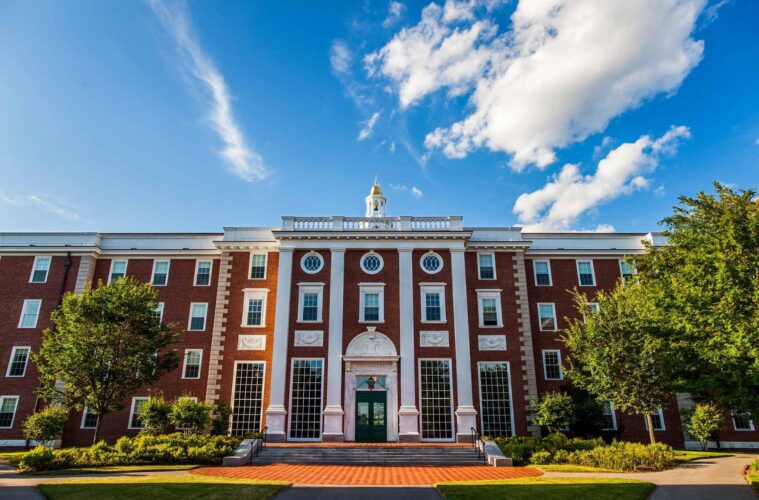By Maria Koulourioti,
When educators identify their ideal pupils, the sociology of education is frequently ambiguous. It sees these definitions as euphemisms, so what appears to be intellectual judgments are elitist appraisals of pupils’ class statuses. There has been quite a rise of contentious arguments over privilege, private schools, elite colleges, equitable educational access, and fundamental ideals of justice.
In accordance with the research conducted by the National Center for Education Statistics, presented by the American Council of Trustees and Alumni, predicted that around 16.9 million students will enroll in undergraduate programs in the Fall of 2019. Modern institutions contribute to the frenzy by promoting themselves as the greatest educational experience money can buy –spending an average of $1,037651 to do so– and charging accordingly. According to the College Board, full-time undergraduate student expenditures in the 2019-2020 academic school year could range from $18,420 to more than $50,000 per year, depending on the institution. All in all, the theory of democratic elitism has been acknowledged ever since we started to evolve into civilizations, however, it is no secret that higher education has become an even stronger highly prized commodity in recent decades.
Meanwhile, due to the overflow of social media and the constant societal pressure of the peripheral idea of education, the estimated value of a degree is based on the color of the ribbon, not the knowledge or the accomplishment of education itself. These pricing differences convey a clear message to prospective students: not all institutions are created equal. With Ivy League and state flagships regularly raising tuition with little to no decline in demand, middle and lower-class students assume that a “quality” education is confined to an ivory tower. And, unless they want to incur large student debt, they must accept less. In Europe, there is an ongoing battle between public and private institutions, which can be summed up in the following sentence: ” If education cannot be won, it can still be bought”. Either way, there are still forms of intellectual elitism, traced back to democratic elitism.

There are four dimensions of elite institutional configurations (based on the case study “The role of elite education in social reproduction in France, Belgium, and Chile”): The first factor is the degree of structure and visibility: elite education is more or less institutionalized in different countries, with more or less immediately recognized elite establishments. The second dimension is the school level in each nation where elite institutions and/or curricula may be examined, as well as their institutional relationship. The third component is concerned with the degree and mechanisms of selectivity of elite institutions (since assessment standards differ from one system to the next). Finally, we explore the differential weight of education (particularly credentials) in terms of access to occupations and privileged social positions across cultures. These characteristics, when combined, provide national institutional setups in which specific school-linking processes occur. Moreover, Finally, there is cultural elitism, which is defined as presenting pupils with a curriculum that excludes numerous voices. Kenyan schoolchildren, for example, are still learning as much, if not more, about British history through a British curriculum as they are about Kenyan history and culture.
Curriculum violence comes as a result of this. When the curriculum is biased towards one cultural hegemony, students and teachers from different, less represented, or pessimistically portrayed cultures may develop inferiority complexes. The so-called classroom “experiments” on what it means to be a slave or a colonial person, for example, run the danger of traumatizing students from historically marginalized cultures by forcing them to confront heavy, unpleasant problems in front of a curious audience.
We must dispel the myth that prestige alone signifies excellence. There should be no value disparities in education since all education has intrinsic worth. Students should not be taught that community colleges and local schools are inferior to conventional institutions. Instead, we should teach students how to assess universities based on the quality of education they provide and their commitment to preparing graduates for long-term success.

How should this be done?
Begin by expanding the assessment. Schools must consider how to assess kids in ways other than academic ability based on social advantage. At the same time, institutions must participate in this debate by ensuring that admittance criteria to tertiary education are more comprehensive and supportive of character and human flourishing than they are currently. Second, we must strengthen the prestige of public colleges. As long as kids queue at the same top-tier, Ivy League, and Russell group institutions, the pressure on guidance counselors, professors, parents, and, of course, students to surpass one another will persist, producing stress and unhealthy zero-sum rivalry. To address this, whole national systems and districts must seek to strengthen the reputation of state institutions so that progression to tertiary educational paths is more seamless and conscientious. Finally, it is time to decolonize the curriculum completely. If the society that humans require in the future is more inclusive, sustainable, and socially responsible, the ideals implied in the curriculum must be reconsidered.
If we search for the good and recognize gifts as they are rather than as they should seem in a strict framework, the entire issue of elitism will become a different one, one of human flourishing in all its many and powerful manifestations.
References
-
Elitism affects schools across the globe: it needs to be kept in check. theconversation.com. Available here
-
The role of elite education in social reproduction in France, Belgium and Chile: Towards an analytical model – Marie Verhoeven, Hugues Draelants, Tomás Ilabaca Turri, 2022
- How Elitism Affects Higher Education – American Council of Trustees and Alumni. goacta.org. Available here




